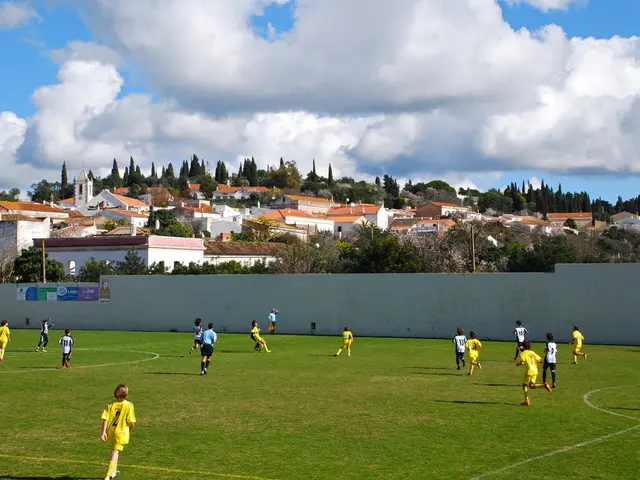Techniques for Encouraging Children to Grow from Errors in a Constructive Manner
In life, everyone stumbles sometimes, and that's perfectly okay. Teaching kids to see mistakes as opportunities for growth rather than sources of shame can reshape their entire approach to learning and personal development. Here's how to foster a growth mindset that helps kids view their errors as stepping stones towards success.
Embrace the Mess
As parents, it's our responsibility to create a safe and supportive environment where mistakes are seen as natural parts of the learning process. Show your kids that you too make errors and have learned from them. Share personal anecdotes about lessons you've gained from fate's occasional stumble.
Get Excited About Effort
Praise kids for their hard work and perseverance instead of their innate talent. When someone puts in the time and effort to master a skill or overcome a challenge, they build resilience and perseverance. When kids know that their efforts matter, they're more likely to take learning seriously.
Teach Reflection and Goal Setting
Help kids identify, set, and achieve goals by breaking them down into manageable steps. Encourage regular self-reflection to assess progress, identify areas for improvement, and celebrate small successes along the way. This mindset helps kids embrace growth, as they focus on the journey rather than the destination.
Encourage Constructive Dialogue
Talk about mistakes in a positive and constructive manner, focusing on what can be learned from failings instead of reacting with anger or disappointment. Use open-ended questions to help kids analyze their errors, connect the dots between mistakes and lessons learned, and take steps to correct their errors in the future.
Use Positive Language
Encourage kids to embrace the growth mindset by cultivating self-talk that acknowledges their abilities can grow and develop. Help them reframe statements like "I can't do this" into "I can't do this yet," fostering a belief that mastery is attainable through effort and perseverance.
Make Learning a Game
For the younger set, learning can take the form of play. Create games and arts and crafts projects that reinforce positive thinking, celebrate effort, and teach the value of trial and error. Childhood is the best time to instill the belief that failure is just a chance to revisit an experience and grow from it.
Model Resilience
When children witness their parents persevering in the face of adversity and using mistakes as stepping stones towards growth, they learn by example. Whether you're working towards personal development goals or learning a new skill, don't shy away from sharing your learning process and the lessons you've picked up along the way.
Fostering a Growth Mindset: A Lasting Gift
By teaching kids to embrace mistakes as chances for growth, you're equipping them with the essential tools for lifelong learning, emotional resilience, and a love of the learning journey. As confidence grows, your children will become brave explorers who take on challenges head-on, as they know the treasure hidden behind failure—wisdom and newfound strengths—waits on the other side.
- By modeling resilience and discussing mistakes positively, we can foster emotional intelligence and respect for learning challenges in our children.
- Embrace equality in fostering a growth mindset, ensuring all children, regardless of their abilities, understand that learning is a continuous process of growth and development.
- To instill a growth mindset, set personal-growth and education-and-self-development goals for yourself, demonstrating that everyone can learn and grow.
- Boundaries are crucial when discussing mistakes and learning challenges. Encourage open dialogue while also setting clear expectations for respect and empathy towards oneself and others.








